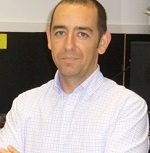Chromatic Aberration in the Eye
This webinar is hosted By: Technical Group
14 May 2024 11:30 - 12:30
Eastern Daylight/Summer Time (US & Canada) (UTC -04:00)
The human eye suffers from significant chromatic aberrations, which can cause both a change in magnification of the image and a shift in the focal plane as function of wavelength. This webinar, hosted jointly by the Color Technical Group and Applications of Visual Science Technical Group, explores the impact of chromatic aberration on vision and how the eye responds to polchromatic stimuli. The basic concept of chromatic aberration will be introduced as well as the disruptions it may cause to vision and methods by which to measure chromatic adaptation. Additionally, the webinar will explore clinical applications of chromatic aberration and its relationship with myopia.
Subject Matter Level: Introductory - Assumes little previous knowledge of the topic
What You Will Learn:
• The impact of chromatic aberration in vision and adaptation
• Subjective and objective measures of visual accommodation to polychromatic stimuli
• How longitudinal chromatic aberration acts as a key for eye growth control
Who Should Attend:
• Students
• Postdocs
• Faculty who want to learn more about the basics of chromatic aberration
• Anyone interested in current research on chromatic aberration in the eye
About the Presenters:
Enrique Josua Fernandez from The University of Murcia Presents: Impact of Chromatic Aberration in Vision and Adaptation
 Enrique Josua Fernandez received his Ph.D. degree in 2004 from University of Murcia (UM), Spain, applying adaptive optics (AO) techniques to the human eye. He is the author of more than 50 articles, and more than 10 inventions. He has been the cofounder of the spin-off company Voptica, being the first author of several patents of ophthalmic instruments for diagnosis and visual simulation based on AO technology, and several types of intraocular lenses. He has chaired the sections of Vision and Applications in the Spanish Society (SEDOPTICA) and in OPTICA. Among other distinctions, Dr. Fernandez was the recipient of the International Pascal Rol Award in 2006, SPIE; Young Researcher Award, Royal Spanish Physic Society and SEDOPTICA in 2003. Currently he is associate professor and vice-dean of Physics at the UM. His current research interests include new and efficient forms to generate high photon-bunching light sources for biomedical optics applications and quantum imaging.
Enrique Josua Fernandez received his Ph.D. degree in 2004 from University of Murcia (UM), Spain, applying adaptive optics (AO) techniques to the human eye. He is the author of more than 50 articles, and more than 10 inventions. He has been the cofounder of the spin-off company Voptica, being the first author of several patents of ophthalmic instruments for diagnosis and visual simulation based on AO technology, and several types of intraocular lenses. He has chaired the sections of Vision and Applications in the Spanish Society (SEDOPTICA) and in OPTICA. Among other distinctions, Dr. Fernandez was the recipient of the International Pascal Rol Award in 2006, SPIE; Young Researcher Award, Royal Spanish Physic Society and SEDOPTICA in 2003. Currently he is associate professor and vice-dean of Physics at the UM. His current research interests include new and efficient forms to generate high photon-bunching light sources for biomedical optics applications and quantum imaging.
Benjamin Chin from UC Berkeley Presents: Accommodative State Varies Systematically with the Spectral Content of Light
 Benjamin Chin is currently a postdoctoral researcher in the lab of Dr. Emily Cooper at UC Berkeley. Dr. Chin completed his Ph.D. in psychology at the University of Pennsylvania under the supervision of Dr. Johannes Burge. His interest is in the computational mechanisms underlying important visual tasks such as accommodation, motion perception, and depth perception. Chin employs methods from visual psychophysics, computational modeling, and continuous response measurements, such as hand and eye tracking.
Benjamin Chin is currently a postdoctoral researcher in the lab of Dr. Emily Cooper at UC Berkeley. Dr. Chin completed his Ph.D. in psychology at the University of Pennsylvania under the supervision of Dr. Johannes Burge. His interest is in the computational mechanisms underlying important visual tasks such as accommodation, motion perception, and depth perception. Chin employs methods from visual psychophysics, computational modeling, and continuous response measurements, such as hand and eye tracking.
Dibyendu Pusti from The University of Houston Presents: Role of Longitudinal Chromatic Aberration in Detecting Sign of Defocus
 Dr. Dibyendu Pusti is a Senior Research Scientist at the University of Houston's College of Optometry, Texas, US. He earned his PhD in Vision Science from the University of Murcia, Spain, supported by the Marie Skłodowska-Curie Grant. Additionally, he holds a Master of Optometry from Bharati Vidyapeeth University, India, and a Bachelor's in Optometry from Vidyasagar College of Optometry, India. With over 14 years of experience in optometry and vision science, his main focus is advancing the understanding of myopia through specialized techniques like wavefront sensing, adaptive optics, optical simulations, and optical metrology. Dr. Pusti has presented at numerous international conferences, published in peer-reviewed journals, and actively contributes as a reviewer.
Dr. Dibyendu Pusti is a Senior Research Scientist at the University of Houston's College of Optometry, Texas, US. He earned his PhD in Vision Science from the University of Murcia, Spain, supported by the Marie Skłodowska-Curie Grant. Additionally, he holds a Master of Optometry from Bharati Vidyapeeth University, India, and a Bachelor's in Optometry from Vidyasagar College of Optometry, India. With over 14 years of experience in optometry and vision science, his main focus is advancing the understanding of myopia through specialized techniques like wavefront sensing, adaptive optics, optical simulations, and optical metrology. Dr. Pusti has presented at numerous international conferences, published in peer-reviewed journals, and actively contributes as a reviewer.
